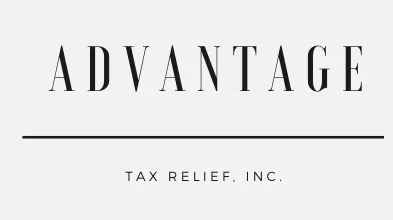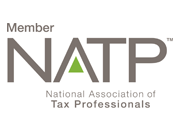Understanding Your IRS Negotiation Options in 2024
September 28, 2024
If you’ve ever tried reaching the IRS by phone, you’re familiar with the seemingly endless wait times and multiple transfers that often lead to frustration. Now, imagine trying to negotiate your tax debt under these conditions—without a clear understanding of your options.
The process can feel like an uphill battle, making it even more challenging to resolve your tax issues. That’s why it’s so important to be informed about all of the different ways in which you can negotiate with the IRS.
In this article, we’ll break down the most common methods for settling tax debts and offer guidance on how to navigate this complex process more effectively (and with the right help).
IRS Negotiation Options
1. Installment Agreements
An installment agreement
allows you to pay your tax debt in manageable monthly payments rather than in one lump sum. This option is suitable if you can’t pay your tax bill in full but can afford to make regular payments.
- How It Works: You propose a monthly payment amount that fits your budget, and the IRS will review your financial situation to determine if it’s acceptable. If approved, you’ll enter into a formal agreement and make monthly payments until your debt is fully paid off.
- Pros: This option prevents the IRS from taking collection actions such as garnishing wages or levying bank accounts.
- Cons: Interest and penalties continue to accrue on the unpaid balance, which can increase the total amount you owe over time.
2. Offer in Compromise (OIC)
An Offer in Compromise
is an agreement between you and the IRS that allows you to settle your tax debt for less than the full amount owed. It’s designed for people who can’t pay their debt in full and can demonstrate they’ve been through financial hardship.
- How It Works: You submit a proposal to the IRS outlining how much you can afford to pay and why you believe this amount should be accepted as a full settlement. The IRS will then review your documentation and financial situation to determine if your offer is reasonable.
- Pros: If accepted, you’ll pay less than what you owe, and the debt will be resolved. This option can significantly reduce your tax liability.
- Cons: The process can be lengthy and complicated, and not all offers are accepted. Additionally, you’ll need to meet strict eligibility requirements, and there’s a hefty non-refundable application fee.
3. Currently Not Collectible (CNC) Status
If you’re experiencing severe financial hardship and can’t make any payments toward your tax debt, you might qualify for Currently Not Collectible status. This status temporarily halts IRS collection actions.
- How It Works: You provide documentation to the IRS showing that you’re unable to pay your debt due to financial difficulties. The IRS will review your situation and may place your account in CNC status, which means they won’t pursue collection actions against you while you’re unable to pay.
- Pros: This option provides temporary relief from IRS collection actions, such as wage garnishments and bank levies.
- Cons: Interest and penalties will still continue to accrue, and the IRS may keep a close watch on your financial situation to determine if your status should be continued or changed.
4. Penalty Abatement
If you’ve been hit with penalties
for late payments or non-filing, you might be able to request a penalty abatement. This means you can ask the IRS to reduce or remove your penalties based on reasonable cause.
- How It Works: You must demonstrate to the IRS that your failure to pay or file on time was due to circumstances beyond your control, such as a serious illness or natural disaster. If the IRS finds your reasons valid, they may reduce or eliminate the penalties.
- Pros: Reducing or removing penalties can lower your overall tax liability.
- Cons: You’ll still be responsible for paying the original tax debt and any accrued interest.
Tips for Successfully Negotiating with the IRS
- Gather Your Financial Information: Before negotiating with the IRS, make sure you have a crystal clear understanding of your financial situation, including documentation to back up your income, expenses, and all of your assets. This will help you present a realistic proposal.
- Be Honest and Accurate: Provide accurate information to the IRS to avoid complications. Misrepresenting yourself or the facts can lead to delays, rejections, or even additional penalties.
- Consider Professional Help: Tax relief professionals like John and Linda at Advantage Tax Relief, Inc are a valuable resource and can assist you in negotiating with the IRS. They have experience in handling tax debt and can help walk you through every step of the complicated process.
- Stay in Communication: If you’ve entered into an agreement with the IRS, keep up with your payment schedule and communicate if you encounter any issues. Maintaining a positive relationship with the IRS can only help prevent further complications.
- Review Your Options Regularly: Your financial situation may change over time, so it’s important to keep up to date with your tax relief options and adjust your strategy as needed.
If you’re struggling with tax debt and need help negotiating with the IRS, reach out to Advantage Tax Relief, Inc. We will assess your situation, help you choose the best resolution option, and work on your behalf to achieve the best possible outcome.
Remember, addressing tax debt sooner rather than later can help you avoid additional penalties and interest and provide you with a clearer path to financial stability. If you’re ready to explore your options for settling tax debts with the IRS, contact our team today for a free, no-obligation consultation. Call Advantage Tax Relief, Inc at (630) 773-3200 and ask to speak to Linda Bal.

The IRS in December sent a total of $2.4 billion in "special payments" to roughly 1 million Americans, part of an effort to ensure that people who didn't receive all of their federal stimulus checks during the pandemic would finally get the money. Most eligible taxpayers have already received their Recovery Rebate Credit, as the payment is called, but for those who haven't there is still time to submit a claim. But time is running out, as the deadline to file a claim is April 15. Here's what to know. What to know about the $1,400 IRS stimulus checks The Recovery Rebate Credit was designed for people who didn't get all or some of the stimulus checks when they were issued during the pandemic. Lawmakers authorized three stimulus payments, with two sent in 2020 and a third in 2021. The checks are a holdover from the three stimulus payments that were sent during the pandemic, as some people may not have received some of the money, even if they were eligible. The tax agency disbursed the funds after reviewing internal data that showed many people had filed tax returns but yet didn't claim what is known as the "recovery rebate credit" in 2021. However, non-filers, or those who have not filed Payment amounts will vary by person, with a maximum amount of $1,400 per recipient, the agency said in a statement. Who will get a payment from the IRS? Most taxpayers who were eligible for the stimulus payments have already received them directly, or later through the recovery rebate credit, the IRS said. However, the encourages non-filers to claim credits before the approaching April 15 deadline, as they may be eligible for the the up to $1,400 payment. Who is not eligible for a payment from the IRS? The eligibility requirements to file a claim to the 2021 Recovery Rebate Credit are as follows: -You are a legal U.S. resident. -Either you or someone you claim as a dependent has a valid Social Security Number or Adoption Taxpayer Identification Number issued by the IRS. -You cannot be claimed as a dependent on another taxpayer's 2021 tax return. -See here for more information on eligibility. Do you need to apply for the IRS payment? For those who have not yet received a payment, the answer is yes. While most eligible taxpayers have already received the funds through automatic payments, eligible non-filers will have to file a claim in order to get their payment. In order to claim the 2021 Recovery Rebate Credit, taxpayers must file a 2021 tax return by the April 15, 2025, deadline, "even if their income from a job, business or other source was minimal or non-existent," according to the IRS' website. Detailed information on how to file a claim for the 2021 credit can be found here. When will the IRS send the payments? The tax agency said the checks will be sent in December, with most of the payments arriving by late January 2025. The money will either be automatically direct deposited to the recipient's bank account or will arrive in the mail via a paper check. Contact us today for all your IRS needs! {{content_library.global.phone.148012611}}

Tax season started in late January, but the IRS’s latest statistics show that many Americans are still waiting to file their taxes. As of February 7, 7.7% fewer tax returns have been received by the agency compared to a similar time frame last year, according to its latest data release. While the IRS expects filing numbers to even out, the IRS.gov website has experienced a 40% decline in visits this year to date over last year. Francine Lipman, CPA, a tax law professor at the University of Nevada, Las Vegas, says the reasons could be endless but probably come down to simple procrastination. “Despite all the Super Bowl ads, I don’t believe that tax issues are on people’s radar yet,” adds Lipman. This is surprising considering the political climate, says Jordan Rippy, an accounting professor at Johns Hopkins University’s Carey Business School, who expected to see an uptick in returns filed this year. “Given the general climate surrounding the new administration, I would have expected more anxiety in the general population and a desire to receive refunds more quickly,” she tells Fortune. Elon Musk’s Department of Government Efficiency (DOGE) reportedly visited the IRS on Thursday to begin analyzing the agency’s operations. Senator Ron Wyden (D-OR), ranking member of the Senate Finance Committee, later posted on X that “if your refund is delayed, they could very well be the reason.” Average tax refunds are higher this year so far The rise in electronic filing is one of the biggest changes to the tax system in the last decade. With over 90% of individual taxpayers now filing their returns online, the process has become easier to handle for many Americans. But taxpayers still miss out on over $7 billion in underclaimed and unclaimed tax credits and deductions each year. In the 2025 tax season to date, tax filers have received a 18.6% increase in their average refund amount ($2,065) compared to this time last year ($1,741). The IRS cautions this isn’t a perfect indicator of the final trend in tax refunds, since it’s early in the season. The agency says most refunds are issued within 21 days. In the final analysis, the average refund last year was around $3,138. Compared to 10 years prior, last year’s average rebate was down nearly 30% on an inflation-adjusted basis. Rippy says she is surprised that average tax refunds have not decreased more as Americans realize they can adjust their withholdings and get more money per paycheck throughout the year. “If you receive a large tax refund, what you've essentially done is given a loan to the government over the last year that you didn't have to give them, and you've done that interest-free,” says Rippy. At the same time, she admits that the fact that many Americans expect a big refund year after year is a good thing, as it’s a form of forced savings. While many end up saving their refund, others use it to pay down debt, make a home improvement, or go on vacation.

If you’re dealing with IRS wage garnishment, it can feel like you're trapped in a difficult situation. The IRS can take a portion of your paycheck to satisfy your tax debt, causing serious financial strain. However, you do not have to face this alone. There are steps you can take to stop garnishment and restore control over your finances. This guide will help you understand what wage garnishment is, why it happens, and what actions you can take to end it. Understanding IRS Wage Garnishment Wage garnishment is a legal tool used by the IRS to collect unpaid taxes. Unlike many other types of debt collection, the IRS does not need a court order to garnish your wages. They will send you a Final Notice of Intent to Levy before initiating garnishment, and if you don't act, they will take a portion of your paycheck to pay off your tax debt. How Wage Garnishment Affects You Wage garnishment can create numerous challenges, including: - Loss of Income: With part of your wages withheld, it can be difficult to meet daily living expenses. - Damage to Your Credit: Unresolved tax debts and garnishments can hurt your credit rating, making it difficult to obtain loans or secure favorable financing terms in the future. - Stress and Emotional Toll: The financial pressure can create stress, affecting your mental health and relationships. Professional Impact: If colleagues find out about the garnishment, it could affect your reputation at work. Steps to Take to Stop IRS Wage Garnishment If you’re facing wage garnishment, take action quickly to put an end to it: 1. Respond to IRS Notices Immediately If you receive any IRS notice about garnishment, it's vital to act quickly. Ignoring it will only escalate the situation. Contact the IRS and request a Collection Due Process hearing where you can address the garnishment. 2. Explore Payment Plans and Agreements The IRS offers various options to settle your debt, such as installment agreements or an Offer in Compromise (OIC). These options allow you to repay your debt over time or settle it for less than what you owe. 3. Apply for Hardship Relief If the garnishment is putting you in financial distress, you may qualify for a hardship exemption, which can temporarily stop the garnishment while you work out a solution. 4. Contest the Tax Debt If you believe the IRS has made a mistake in assessing your tax debt, you have the right to dispute it. During this dispute process, garnishment can be put on hold until the matter is resolved. 5. Seek Professional Help Dealing with the IRS alone can be overwhelming. A skilled tax professional can help you navigate the complex process, negotiate with the IRS, and secure the best possible resolution for your situation. Why You Should Work with Advantage Tax Relief The process of stopping IRS wage garnishment requires specialized knowledge and experience. Advantage Tax Relief, located in Itasca, IL, offers over a decade of experience in tax resolution. Their team of experts knows how to work with the IRS to resolve wage garnishment issues and put together a personalized plan for you. Working with Advantage Tax Relief means having a dedicated partner who understands the nuances of IRS procedures and will advocate on your behalf to reach a favorable resolution. Their team will help you explore all options, including negotiating payment plans, filing for hardship relief, or contesting tax assessments. Take Action Today Don’t let wage garnishment control your life. Contact Advantage Tax Relief in Itasca, IL at 630-773-3200 for a consultation. Their team is ready to guide you through this process, offering the help you need to regain control of your finances and find relief from the IRS.







Share On: